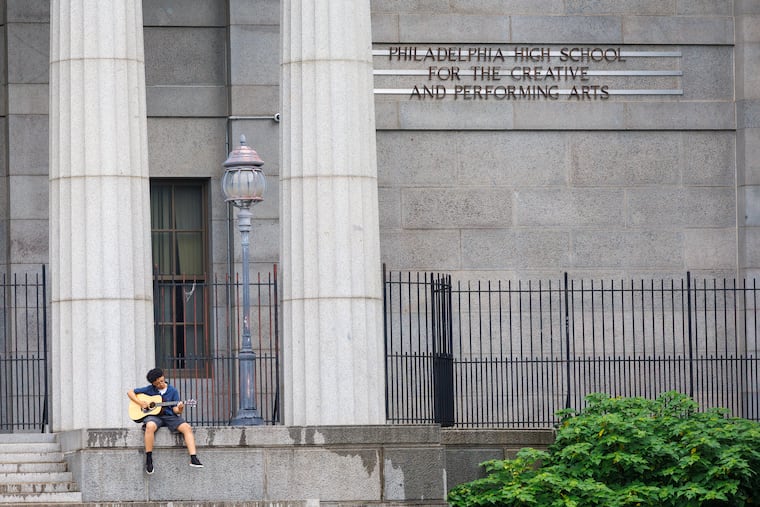CAPA students received inaccurate grades, causing confusion among parents regarding the situation.
Amid rising concerns from parents, students, and educators at Philadelphia’s High School for Creative and Performing Arts (CAPA), a significant issue has surfaced as the school year nears its conclusion: questionable grading practices involving students who reportedly received arbitrary grades in math classes without any instructional support.
Sources within the school have disclosed that several math classes reportedly experienced periods of months without proper instruction, yet grades—exemplified by marks such as an 89 for one term and an 80 for another—were assigned without clear foundations. These claims extend to a broader impact involving nearly 300 students, accounting for over 40% of the school’s population, who faced similar discrepancies, including a lack of instruction in a freshman physical education class.
When confronted about these grading irregularities, families encountered a patchwork of responses from school administration. Some were informed that the questionable grades would not factor into final assessments, while others were advised that corrections would occur but only at the end of the academic year. Reports reveal that certain students received “incompletes” due to unfulfilled instructional requirements in physical education, while others in algebra and precalculus were assigned fabricated grades despite the absence of instructional continuity.
The situation has elicited concern not only over the integrity of the students’ academic records but also on how these grades might affect future educational opportunities, particularly as students prepare for college applications. Interviews with multiple anonymous stakeholders paint a picture of significant disruption within CAPA, highlighting a lack of consistent teaching, ineffective policies, and unresolved discrepancies in student records.
Monique Braxton, a spokesperson for the district, acknowledged ongoing concerns regarding a limited number of math classes. She stated that the district had actively engaged with CAPA administrators and affected families to address the situation, assuring that grades had been verified and could be reviewed by parents.
The complications are compounded by a national educator shortage that left CAPA down a math teacher at the start of the school year, a predicament reflective of a broader trend within the Philadelphia School District, which reported a vacancy rate of approximately 3.3%. The resultant classroom disruptions led to disorganized teaching conditions, as some classes faced ineffective substitute arrangements.
Despite the appointment of a more seasoned math teacher recently, students are still grappling with educational gaps. The absence of effective instructional oversight has raised alarming questions among parents regarding their children’s readiness for future academic requirements, particularly in critical subjects like precalculus, vital for those aiming to pursue higher education.
As the school year draws to a close, the administrative response to these grading issues remains uncertain. Many parents, still seeking clarity on unresolved grade discrepancies and their implications on student performance, express frustrations over inconsistent communication from school officials. The culmination of these events paints a troubling narrative for CAPA, once lauded as a prestigious magnet school, now facing scrutiny over its academic integrity and commitment to student education.
Families contend with unclear directives about rectifying grades, alternative educational options, and assurances that will determine how their children progress academically following a tumultuous year. The situation raises critical questions about accountability and the overarching need for systemic improvements within the district’s educational framework.
Media News Source






